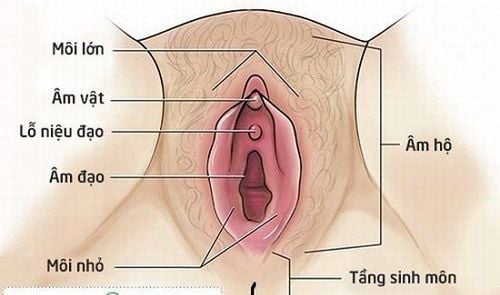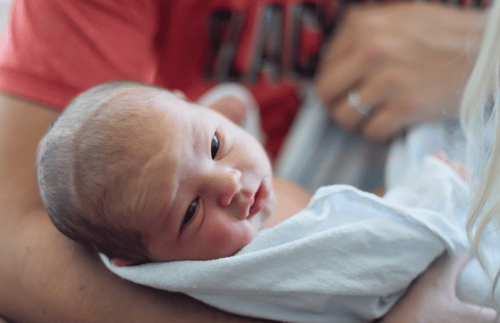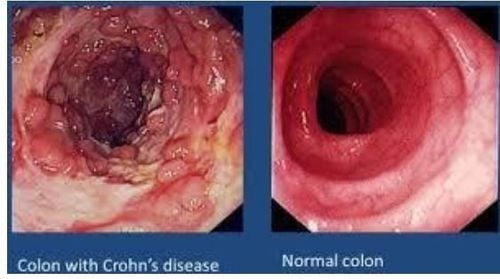This is an automatically translated article.
Postpartum infections include a wide range of problems that can occur after vaginal and cesarean deliveries or during breastfeeding such as postpartum uterine infections, postpartum perineal infections. In addition to trauma during delivery or a cesarean section, physiological changes during pregnancy contribute to the development of postpartum infection.
1. What is postpartum infection?
The body in recovery can be vulnerable to some infections after you have a baby. Some postpartum infections actually start to rekindle during labor, although they often don't show any signs for days or even weeks after birth.
Common types of infections include:
Endometritis , endometrial infections Mastitis , breast infections Infected incisions Urinary tract infections Endometritis
You are at high risk endometrial infection if you had a cesarean section, and the risk is even higher if you've had a cesarean section in a previous birth.
In addition, your risk of endometritis is also higher if labor is prolonged or there is a long time between when your water breaks and your baby is born. Among women who gave birth vaginally (also known as vaginal birth), the risk was higher for those who had a vaginal birth requiring assistance such as an episiotomy than for those who had a vaginal birth. usually without support.

Viêm nội mạc tử cung là một trong những loại nhiễm trùng sau sinh thường gặp nhất
Mastitis
Breast infections affect 1 in 10 nursing mothers and more likely in mothers with cracked nipples.
Infected incision
If you have had a cesarean section, there is a risk of infection after the birth. In vaginal births with an episiotomy, the incision can also become infected, although this complication is uncommon. Up to 16 percent of women who have a caesarean section develop an infection, usually within a week of giving birth.
Urinary tract infections
You are more susceptible to urinary tract infections after giving birth, especially if you have a catheter in your bladder or an epidural.
2. What are the symptoms of postpartum infection?
Many infections are often accompanied by fever, chills, or a general feeling of illness or malaise and sometimes these are the only obvious symptoms you may feel. Other symptoms to look out for include:
Lower abdominal pain, low-grade fever or bad odor (signs of endometritis) An area of pain, hard, warm, red (usually just one breast) and fever, chills, muscle aches, fatigue or headache (signs of mastitis) Redness, discharge, swelling, warmth, or increased tenderness or pain around the site of an incision or wound (whether it's a cesarean section, episiotomy or laceration) or an incision that looks like it's starting to separate. Difficulty urinating, painful urination, feeling like you need to urinate often and urgently but little or no urine comes out, or cloudy or bloody urine (signs of a urinary tract infection). urine)

Đi tiểu thường xuyên và đau đớn có thể là triệu chứng của nhiễm trùng sau sinh
3. What should I do if I suspect an infection?
Because an untreated infection can quickly become serious, it's important to tell your doctor early if you develop a fever or any of the other symptoms described above.
You may have heard that breast engorgement can cause a mild fever. Even so, you are not sure that breast engorgement is the cause of the fever and instead, consulting your doctor is the best course of action.
You will be given antibiotics to treat the infection. Tell your doctor that you are currently breastfeeding, so he or she can adjust your medications or even stop breastfeeding. Oral antibiotics are usually enough, but in some situations you may need intravenous antibiotics and other treatments. For example, if you have an infected wound, you may need to open the wound surgically and drain the infection.
You will probably start to feel better within a few days of starting antibiotics, but it is important to take the full and correct dose, even if your symptoms go away. You should ask your doctor how long the medicine will start to work and during use, if beyond that time and the medicine still does not work, you need to let your doctor know. You may then need to switch to a different medication or may need a more in-depth examination because there may be another medical problem you have that hasn't been discovered.
Drink plenty of water to avoid dehydration and get as much rest as possible to help your body fight infections.

Điều trị nhiễm trùng bằng cách sử dụng kháng sinh đầy đủ và đúng liều
After 9 months and 10 days of heavy weight, pregnant women go into labor and face a level of labor pain comparable to 20 broken ribs at the same time. In order for the birth to go smoothly and safely, pregnant women need to understand: - How the labor process takes place, how long does it usually take to have a normal delivery or cesarean section, to protect the best health? for the unborn baby.
Methods to relieve pain during childbirth, limit pain and relieve psychological pressure during labor. The way to push and breathe during childbirth is usually the right way so that the labor takes place quickly, the pregnant woman does not lose strength during childbirth. How to control postpartum uterine contractions in the shortest time. How to take care of the perineal suture does not cause infection and dangerous complications. Early postpartum re-examination to detect dangerous abnormalities such as residual placenta, missing gauze. Take care of newborn until full month healthy. To ease the pain of childbirth, Vinmec offers a full Maternity program with a complete "painless delivery" service during and after birth using non-morphine epidural and sedation techniques. ashamed. During the birth process, the mother will be guided by the midwives on how to push and breathe properly, the baby will be born in just 10-15 minutes. After birth, the baby will be cared for in a sterile room before being returned to the mother.
Pregnant women will rest in a high-class hospital room, designed according to international hotel standards, 1 mother 1 room with full facilities and modern equipment. Mothers will be consulted by nutritionists on how to feed the baby before being discharged from the hospital. Postpartum follow-up with both mother and baby with leading Obstetricians and Pediatricians.
If you have a need for medical examination at Vimec Health System nationwide, please make an appointment on the website to be served.
Please dial HOTLINE for more information or register for an appointment HERE. Download MyVinmec app to make appointments faster and to manage your bookings easily.
Reference source: babycenter.com













